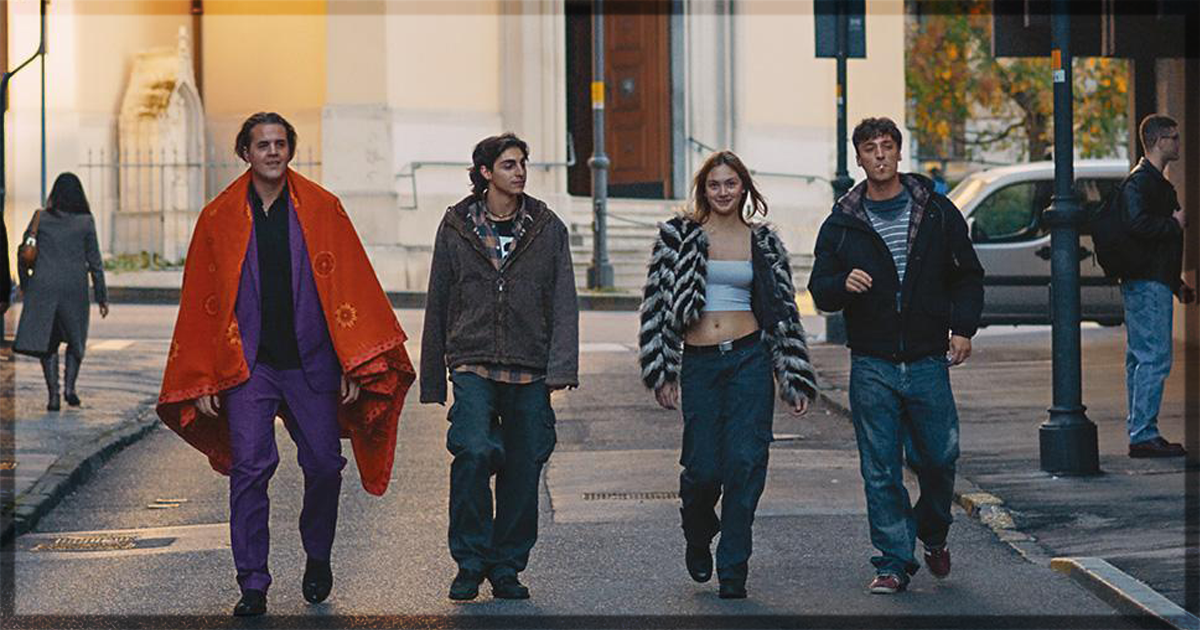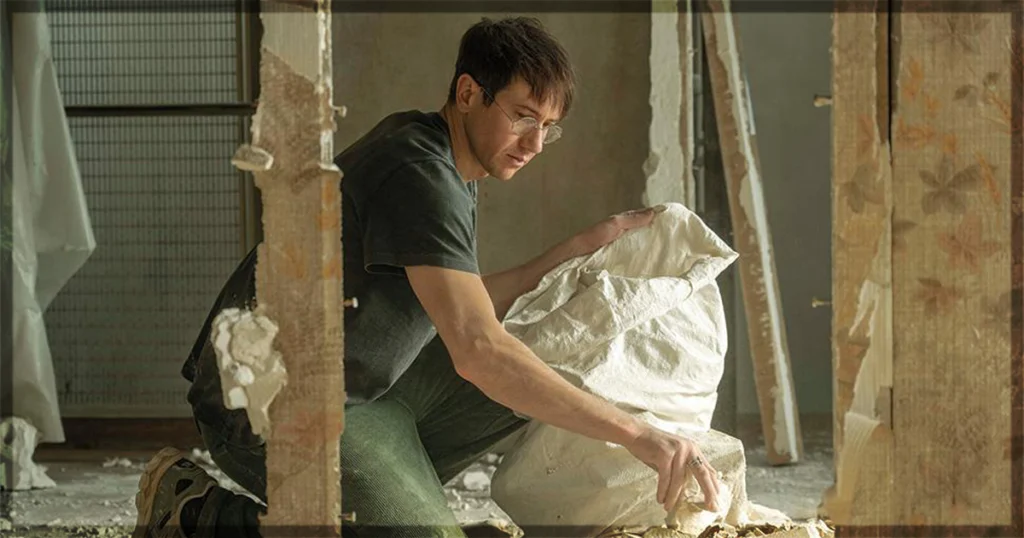The emotional rollercoaster Giacomo Covi’s character undergoes in A Year of School is so relatable it’s obvious why he won the Best Actor prize in the Orrizonti strand of this year’s Venice Film Festival: a new prince has been crowned. In fact all four of the main actors in A Year of School have an ‘introducing’ credit in this charming coming-of-age film. In their speeches after the premiere (which were not translated into English, but my basic Italian was equal to understanding) they expressed huge gratitude for the greatest experience of their lives. Their profuse thanks were particularly directed to the acting coach mentione prominently in the credits but mostly to writer-director Laura Samani, who adapted and modernised the script with Elisa Dondi from an adored Italian novel by Giani Stuparich. A Year of School is in fact precisely the kind of story everybody loves: good-looking youths with their first taste of freedom make the mistakes which will shape their adult lives. Kids can enjoy for a glimpse of the future and adults can reminiscence about their own past foolishness. Either way, when a movie is as good as A Year of School, everybody wins.
It’s 2007 in Trieste. The STEM high school, with an all-male student body, is beside itself at the news of its first girl student: the Swedish Frederika, known to all as Fred (a wonderful Stella Wendick). None of the adults, including her father, seem to think dropping her into an all-boys school in a new language in a strange city in her senior year might be a bit tough. Fortunately Fred is mature and cheerful, and able to take the early hazing on the chin, but rapidly singles out Antero (Mr. Covi) for her attention. He was previously the best student but her sincere interest in his calculus homework mitigates the jealousy. Since Antero also has two lifetime best friends, Pasini (Pietro Giustolisi) and Mitis (Samuel Volturno), suddenly they’re a gang of four.
Pasini has a Vespa and is badly struggling with the recent death of a beloved older brother, while Mitis, who is Slovene and the most emotionally intelligent of the boys, has a long-term girlfriend. Mitis also holds the keys to The Trap, a disused print shop the boys use as a private clubhouse for smoking weed and other minor hijinks. Fred’s father is so focused on his career, restructuring one of the local factories, that he pays very little attention to his child. But Fred is a good girl, in fact they all are good kids, responsible and kind, and thoughtful about each other. Pretty soon the four of them spend their time outside class learning all the things school can’t teach you. And as they run around the city having adventures Mitis’ quiet observation that Fred will eventually choose one of the three of them comes true. The real drama comes after Fred makes her choice.
All four of the main actors are delightful, bringing a real sense of friendship and a tender care for each other that doesn’t often exist on American culture, especially between boys. In the Trap they even share a bed, which is impossible to imagine in an American setting. But it’s equally impossible to imagine modern American teenagers being allowed unmonitored freedom like this, even ones this smart and capable. Everything feels very safe, even when Pasini is drunk off his head dabbling in self-harm, and even when Fred has all her clothes stolen after gym class and must walk home wrapped in a towel. The way in which Fred grows up over the year is not always pleasant, and definitely not very fair, but she has an excellent sense of herself the year’s adventures only strengthen. When her dad makes some unwise remarks she immediately stands up for herself, and the fact that Ms. Wendick must act in three languages here is just so impressive. The three young men also really deliver: Mr. Volturno has the least showy part but grounds the whole dynamic with his observations and his friendliness; the handsome Mr. Giustolisi has a fine line in barbed comments and haunted longing; and Mr. Covi charms as a well-meaning but immature young man doing his best to grow up fast. But Fred is much more than a side character for the slowly maturing boys. The final long take of her walking out of the school library and into her future is so hopeful and happy that it rises the entire movie up with it.
In the Q&A someone asked if there were any plans for a sequel, and Mr. Volturno, who was holding the mike, cheerfully threw out a few plot suggestions. The excitement around this movie and its young stars is a rare experience, and the idea that it could immediately spawn a sequel is kind of unusual (not even Cedric Klapisch’s Spanish Apartment trilogy originally had its long-term potential). It would be fascinating to see if the friendship vibe could be maintained in a second film, but what makes A Year of School so special is how these kids are still on the cusp. Their mistakes and unhappinesses are still not permanent, their futures are still wide open, and all their greatest days are yet to come. Let’s hope all four of its stars are able to build careers that match their promise.
A Year of School (Un anno di scuola) recently played at the Venice International Film Festival.
Learn more about the film at the Venice site for the title.
You might also like…
‘At Work’ Film Review: Bastien Bouillon is Quietly Compelling


